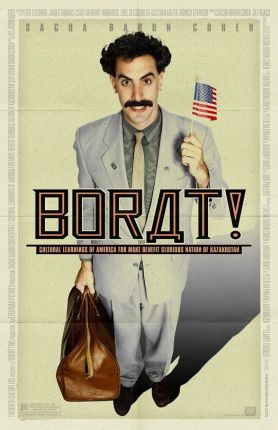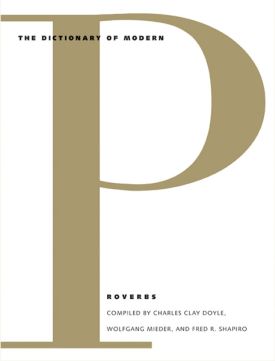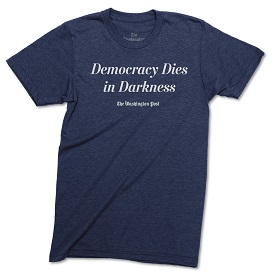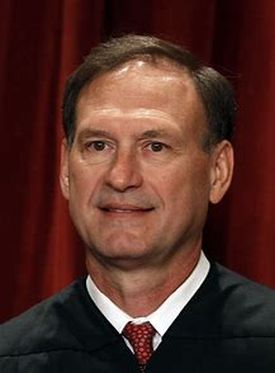Conventional Cuts
From The American SpectatorUnlike some of those who disapproved of Borat! Cultural Learnings of America for Make Benefit Glorious Nation of Kazakhstan, I found the picture both funny and clever. Though it was on occasion revolting, it was hardly more so than other gross-out comedies. I thought it a brilliant idea to skirt the taboos of civilized discourse in our liberal Western societies — taboos sometimes referred to inexactly as “political correctness” — by assuming the persona of a supposed Kazakh peasant with all a peasant’s robust sexist, racist, homophobic etc. attitudes. But two things seemed to me to be missing in the movie, co-written by and starring Sacha Baron Cohen and directed by Larry Charles. One was any willingness to attack sacred cows not already well-peppered by bien pensant commentators. No one takes Borat’s anti-Semitism, sexism or homophobia seriously — though in the case of the first this is mainly because he himself is Jewish — but his ironic anti-Americanism is treated as sober earnest. To take on the alleged stupidity, credulity and bloodthirstiness of the Bush-supporting American heartland is simply to pander to the élite European opinion that Borat otherwise might be supposed to embarrass.
The other, more interesting omission, is children. They only come into the picture when, running towards his ice-cream van, they are frightened by the title character’s pet bear, Roxanne. Everything else is there in this portrait of agricultural life and peoples outside the effete fastidiousness of our advanced and progressive society. The peasant’s prejudices against other races and religions? Check. His earthiness about sex? Check. His outrageous attitude towards the role of women? Check. But wait a minute! What about the chief thing that women are valued for in peasant society — more than sex, more than housework, more even than pulling the plow. What about their role as mothers? Borat dreams of “one day holding Pamela [Anderson] in my arms and making romance explosion on her stomach” without realizing that he has broken character. That “dream” is not something out of the past or the remote tribal societies of Central Asia but a distinctively Western and contemporary one, a dream of sex without consequences or responsibility. A real Kazakh peasant, who I doubt still exists — and who, if he does, looks nothing like Borat Sagdiyev — would have dreamt of her bearing him fine strong sons.
This may seem like an insignificant inaccuracy, but it gets to the heart of Mr Baron Cohen’s inadequacies as a satirist. He is only able to adopt an unfamiliar, outsider’s perspective to the point where it serves his comic turn and no further. Beyond that he has a very conventional mind. But then moviemakers so often do! In fact, I sometimes wonder if an original mind is not a positive handicap to a film-maker. The images on the big screen are so striking in themselves that they demand a context of the familiar to keep them from becoming too frightening. The best movies make use of this bigness, this threatening quality of the medium without allowing it to get out of hand. The worst sink effortlessly and gratefully into mere cliché, which is especially reassuring to the anxieties of originality. Like Sacha Baron Cohen’s conventional British anti-Americanism, the cliché — whether cinematic or political — is the foundation on which any really popular satirical essay is almost certain to rest.
It helps, too, that the movies today are so completely lacking in any sense of perspective on their own culture, except in the strictly limited, post-modern way that a superhero movie, for example, will give us a nudge and a wink from time to time just to show us that it knows it is all comic-book stuff and isn’t taking any of it seriously. Not really. Movie culture is especially poor at offering the slightest critique of the ethos of the liberationist, that now-comic figure (in most contexts) from the 1960s who professed to believe in the “oppressive” nature of traditional and non-voluntary social and moral ties between people, and in living for personal pleasure and at will as the only worthwhile thing in the world. Just look at Kelly Reichardt’s Old Joy and Jonathan Berman’s Commune, the one a (very undramatic) drama and the other a documentary, both of which treat the old hippie dreams of peace and love, sexual freedom and personal autonomy, as if they had only just been thought of. Even if the hippie ideal were true, it could not be this true.
I thought at first that Ryan Murphy’s Running With Scissors, an adaptation of the best-selling memoir by Augusten Burroughs, was going to be the rare satire that takes on the liberationist mind-set without paying a very conventional tribute to the values which underlie it. But that movie ended up pulling its punches and degenerating into yet another paean to that most tired of movie clichés, the victim hero — a figure whose most spectacular recent appearance was in Clint Eastwood’s lamentable Flags of our Fathers. But I suppose it must count as some kind of achievement for Mr Eastwood to have de-contextualized the entire Second World War. Rather than a battle against Naziism or Japanese imperialism or for American honor, values and world hegemony — none of which things, either the negative or the positive, are ever mentioned in his film — the late Weltkrieg is reduced to a few confusing and disjointed scenes of combat punctuating the maudlin story of a losing personal struggle by three accidental celebrities against the prejudice, stupidity and vulgarity of their non-combatant fellow-Americans and against their own post-traumatic stress syndrome.
So tired am I of the cinematic cliché of the sainted sufferer that I probably went over the top in my admiration for Stephen Frears’s The Queen. What a concept! A movie devoted not to emotionalism but to an admiring portrait of stoicism, reticence, and adherence to form, tradition and good manners — one which, in addition, treats with (at times) appropriate contempt the hysterical celebrity culture that surfaced upon the death of the late Princess of Wales. But Mr Frears is of two minds, and a part of him is with the princess in her grave, weeping and wailing with the best of them. The same part of him approves of the wish of Tony Blair (Michael Sheen) to “save these people” — that is, the royal family — “from themselves.” Moreover, his admiration for the sense of duty and decorum shown by his remarkable Queen (Helen Mirren) is conveyed explicitly only in a snatch of dialogue by the prime minister and has a hard time standing up to the cult of Diana, which is all the more powerful for being kept for the most part off-screen.
He too, in other words, has to pay his conventional tribute to “the People’s Princess” or risk the sort of treatment that Her Majesty was accorded by the popular press. At least we may hope he is forced to it, like her, by force majeur. In any case, he can see both sides of the issue, which is increasingly rare in any sort of movie these days. Usually the cliché is not turned to as a last resort but enthusiastically adopted from the outset as just the thing to make a movie with, the thing no one else could have thought of. Such is the case with Children of Men by Alfonso Cuarón, whose addiction to dipping into Hollywood’s goodie-box of well-worn images of apocalyptic citiscapes, scientific nightmares and futuristic fascists is so powerful that he manages to make even so singular a scenario as that of the only pregnant woman in the world (Claire-Hope Ashitey) for 18 years into an incomprehensible bore. You wouldn’t have thought it possible, would you? But there it is.
Lest we end on that discouraging note, I am happy to be able to recommend in most glowing terms and in time for Christmas another movie about a miraculous pregnancy, Catherine Hardwicke’s version of The Nativity Story — a movie opposite to the ones we have been discussing here in that, instead of making the original into the familiar and conventional, it somehow manages to make the familiar and conventional original. And, as if that were not enough, it also defies the skepticism and outright hostility of Hollywood to religion over several recent decades. To be sure The Passion of the Christ has already led the way in this respect and, not coincidentally, shown that piety can be very profitable. But Miss Hardwicke does something that in my view eluded Mel Gibson, which is to make the great miracle at the center of human history look like what it is and not like a bit of cinematic trickery. Though it is not perfect, I find it much easier to believe in her version of first century Palestine — and so in the Incarnation that she shows taking place there — just because it manages not to look too much like a movie. In particular its Mary (Keisha Castle-Hughes), though quite beautiful and of the right sort of age (she’s 16), has the prematurely hardened features of a peasant who looks like a peasant and so strikes simultaneous blows at the bogus, Borat style of movie-peasantry and at the movie-emotionalism that Mr Gibson’s movie fell prey to. Go to see it as a Christmas treat to yourself.
Discover more from James Bowman
Subscribe to get the latest posts to your email.







